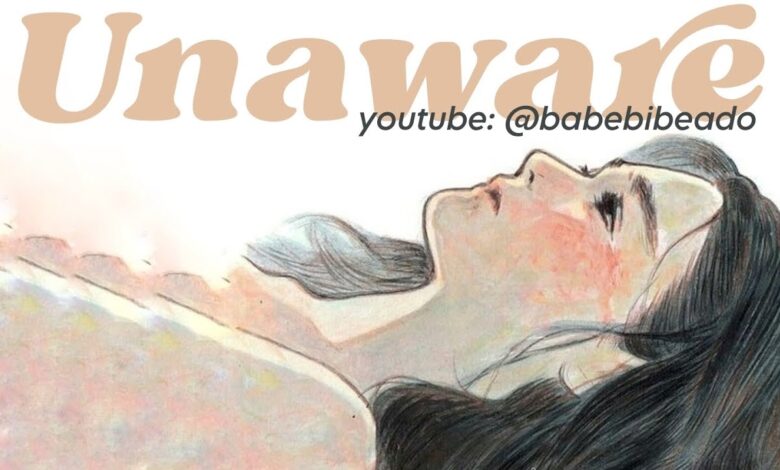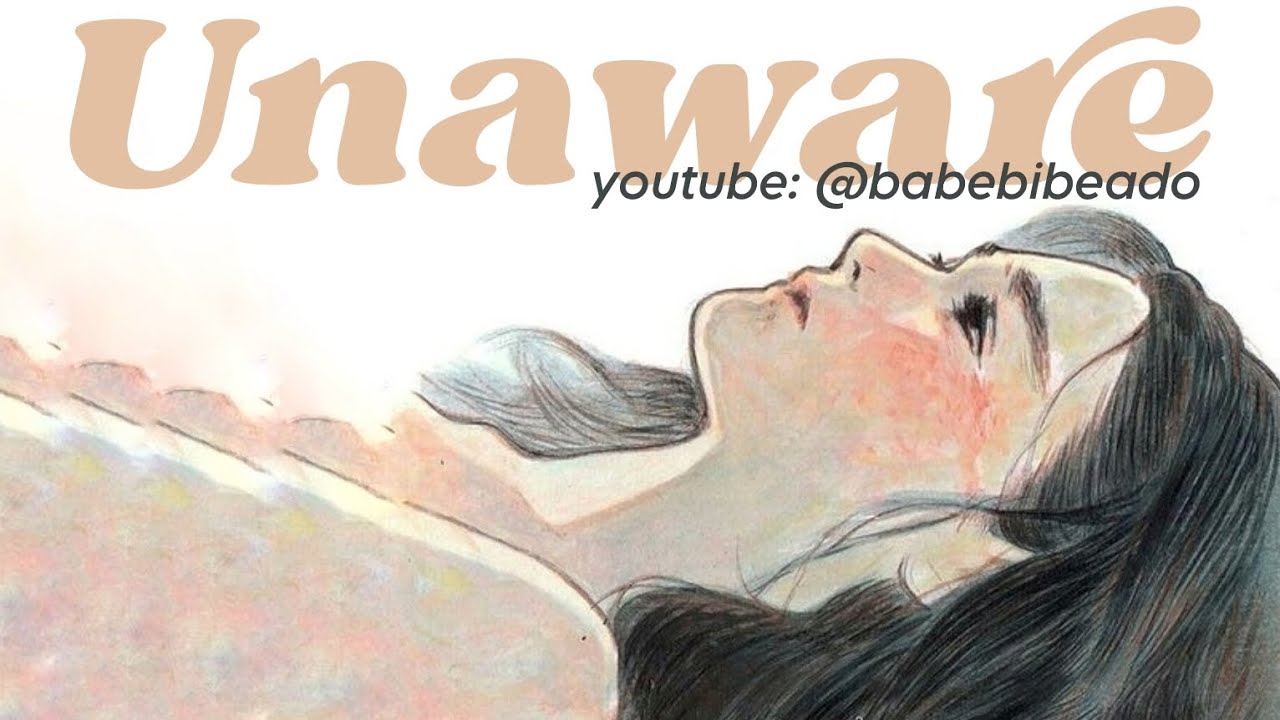
Oblivious Word of the Day
Word of the day oblivious: Stepping into the world of obliviousness, we’ll delve into the depths of this fascinating word. From its subtle nuances to its impact on our social interactions, we’ll explore the various facets of being oblivious. Understanding this concept can lead to greater self-awareness and improved communication.
We’ll explore the different ways obliviousness can manifest, whether intentional or unintentional, positive or negative. From literature to psychology, we’ll examine obliviousness through diverse lenses. The word of the day oblivious isn’t just a vocabulary addition; it’s a window into human behavior and social dynamics.
Defining “Oblivious”

The word “oblivious” evokes a sense of disconnect from reality, a state of being unaware or unmindful. It describes a lack of awareness, often to a degree that seems significant or noteworthy. This lack of awareness can range from a simple oversight to a more profound disconnection from the world around us. Understanding the nuances of “oblivious” requires examining its etymology, different connotations, and how it compares to similar terms.Obliviousness signifies a lack of conscious awareness or recollection of something.
It can relate to specific events, people, or broader circumstances. The word carries a connotation of a certain level of disconnection, suggesting a detachment from the typical awareness one would expect in a given situation. This detachment can be unintentional or even deliberate, leading to varying degrees of judgment about the individual’s actions or character.
Definition and Nuances
Oblivious, at its core, means lacking awareness or memory of something. This can range from a simple forgetfulness to a profound disconnect from reality. The term often implies a degree of fault or deficiency, depending on the context. For instance, being oblivious to a friend’s feelings might be seen as insensitive, while being oblivious to a looming danger could be a serious lapse in judgment.
The degree of obliviousness varies greatly, as does the implication of blame or responsibility.
Etymology and Historical Context
The word “oblivious” stems from the Latin “oblivisci,” meaning “to forget.” This root highlights the fundamental connection between forgetting and being unaware. The word’s usage throughout history reflects changing societal values and expectations regarding awareness and attention. Early uses often focused on forgetting events or details, while later uses broadened to encompass a wider spectrum of unmindfulness.
Comparison with Similar Terms
While “oblivious,” “unaware,” “ignorant,” and “heedless” all relate to a lack of awareness, they differ in their connotations and implications. “Unaware” is a more general term, signifying a lack of knowledge without necessarily implying fault. “Ignorant” suggests a lack of knowledge or understanding that is often considered a deficiency. “Heedless” emphasizes a disregard for something, implying a conscious choice not to pay attention.
Obliviousness often sits between unawareness and heedlessness, implying a lack of awareness that might be unintentional or even difficult to recognize.
| Term | Definition | Connotation |
|---|---|---|
| Oblivious | Lacking awareness or memory | Can imply fault or deficiency, depending on context |
| Unaware | Lacking knowledge | More general, not necessarily implying fault |
| Ignorant | Lacking knowledge or understanding | Often implies a deficiency |
| Heedless | Disregarding something | Implies a conscious choice not to pay attention |
Examples of Usage
The way “oblivious” is used in a sentence demonstrates varying levels of obliviousness.
- Simple oversight: “He was oblivious to the time, completely absorbed in his work.” This implies a momentary lapse in awareness.
- Insensitivity: “She was oblivious to the hurt she caused, continuing with her usual behavior.” This demonstrates a more significant and possibly hurtful lack of awareness.
- Serious lapse in judgment: “The driver was oblivious to the approaching truck, resulting in a collision.” This highlights a critical and potentially dangerous level of obliviousness.
- Unintentional ignorance: “Oblivious to the changes in the company, he continued to follow his old procedures.” This suggests a lack of awareness due to a lack of information or communication.
Examples of Obliviousness
Obliviousness, the state of being unaware or unmindful, manifests in various ways across different contexts. It can range from a simple lapse in attention to a more significant disconnect from reality. Understanding obliviousness involves exploring its varied forms and consequences.
Different Contexts of Obliviousness
Obliviousness plays out in numerous scenarios, often subtly influencing interactions and outcomes. Sometimes, it’s a harmless trait, while in other cases, it can lead to misunderstandings and conflict. The following table provides concrete examples across diverse contexts.
| Situation | Person | Description of Obliviousness |
|---|---|---|
| Social Gathering | Sarah | Sarah completely missed the conversation about the upcoming team project, oblivious to the fact that everyone else had already discussed the details and deadlines. |
| Relationship Dynamics | Mark | Mark consistently forgot important dates like anniversaries and birthdays, demonstrating a lack of awareness regarding his partner’s feelings and expectations. |
| Daily Life | Emily | Emily was completely absorbed in her phone, oblivious to the fact that she had bumped into several people while walking down the street. |
| Professional Setting | David | David failed to notice a critical email regarding a client contract, leading to potential missed deadlines and a loss of business. |
| Public Transportation | Ava | Ava sat next to a stranger on the bus, completely oblivious to the fact that they had been in a heated argument earlier. |
Intentional vs. Unintentional Obliviousness, Word of the day oblivious
Obliviousness can stem from various motivations, sometimes deliberate and sometimes not. Intentional obliviousness involves a conscious choice to ignore or disregard information. Unintentional obliviousness, on the other hand, arises from a lack of awareness or focus.
Positive and Negative Aspects of Obliviousness
In some cases, obliviousness can be a positive trait. For example, someone who is oblivious to the negativity around them might find it easier to maintain a positive outlook. However, in other instances, obliviousness can be detrimental. For example, an oblivious employee might fail to meet deadlines or miss crucial information, potentially harming their team’s productivity.
Crucial and Detrimental Scenarios
Obliviousness can be crucial in certain situations, allowing individuals to avoid stressful or overwhelming experiences. For instance, someone might be oblivious to the harsh realities of a situation to maintain emotional stability. However, in many other cases, obliviousness can be detrimental, leading to significant errors or negative outcomes. Ignoring critical information or important social cues can have profound consequences in professional, personal, and social settings.
Obliviousness in Literature and Pop Culture
Oblivious characters, those seemingly unaware of the obvious, are a common trope in storytelling. Their lack of awareness often serves a crucial function, driving the plot, highlighting character flaws, or providing comedic relief. From the subtle misunderstandings to the blatant disregard for the situation, obliviousness creates layers of complexity in narratives. This exploration dives into how obliviousness is crafted and utilized in various literary and cinematic works.
Instances of Oblivious Characters
Many characters in literature and film exhibit obliviousness, contributing to the overall narrative in diverse ways. Consider characters who miss crucial social cues, misunderstand their surroundings, or are simply unaware of the consequences of their actions. These characters, often portrayed as charmingly unaware or frustratingly insensitive, offer unique insights into human nature.
Obliviousness in Comedy
Oblivious characters frequently provide comedic fodder. Their unintentional gaffes and misinterpretations of situations can lead to humorous outcomes, often creating laughter through the incongruity of their actions and the expected norm. The comedic effect stems from the contrast between their ignorance and the audience’s awareness of the true situation. A prime example is the “in-the-dark” character who keeps saying the wrong thing or doing the wrong thing, leading to increasingly humorous situations.
Today’s word, “oblivious,” really struck a chord with me, especially given the current events surrounding the Biden-Israel-Hamas cease-fire negotiations. It’s easy to feel disconnected from the complexities of global conflicts, to be quite frankly oblivious to the human cost. The recent biden israel hamas cease fire situation highlights how easily we can become detached, emphasizing the importance of staying informed and engaged.
Hopefully, with better understanding, we can move past being oblivious to these issues.
Obliviousness in Drama
While obliviousness can be comedic, it can also contribute to dramatic tension. Characters’ unawareness of impending danger, significant relationships, or societal pressures can heighten the stakes. Their lack of insight creates a gap between their actions and the consequences, leaving the audience on the edge of their seats wondering what will happen next. This dramatic effect is often used to highlight the flaws in the character’s decision-making process or to emphasize the importance of a specific event.
Obliviousness in Specific Literary Works
Obliviousness is employed in various literary works to enhance their impact. The portrayal of characters who fail to grasp important details, such as the impending danger, can add depth to the plot. The consequences of their ignorance can create dramatic irony, adding to the tension for the audience.
Table Summarizing Oblivious Characters
| Work | Character | Effect of Obliviousness |
|---|---|---|
| “Pride and Prejudice” | Mr. Collins | Creates comedic misunderstandings and highlights his social awkwardness. |
| “The Wizard of Oz” | Dorothy | Her initial obliviousness to the dangers of the outside world fuels the narrative’s adventure. |
| “The Breakfast Club” | All the characters | Their initial obliviousness to each other’s situations is gradually revealed, leading to the development of deeper relationships. |
| “Fight Club” | The Narrator | His obliviousness to the nature of the fight club is crucial in revealing the underlying psychological turmoil. |
Obliviousness and Psychology

Obliviousness, the state of being unaware or unmindful of something, plays a significant role in human behavior and interaction. Understanding the psychological underpinnings of obliviousness can shed light on why individuals fail to recognize obvious cues or situations, and how this impacts their relationships and decisions. This exploration delves into the cognitive processes and potential motivations behind obliviousness, and compares it to related psychological concepts.Obliviousness is not simply a lack of attention.
It often involves a complex interplay of cognitive biases, emotional factors, and interpersonal dynamics. Individuals may actively choose to ignore information that contradicts their existing beliefs or desires, or they may unconsciously filter out potentially threatening or discomforting stimuli. This active or passive avoidance of awareness can lead to a range of consequences, from interpersonal misunderstandings to serious errors in judgment.
Psychological Aspects of Obliviousness
Obliviousness stems from a variety of psychological factors. These include selective attention, where individuals prioritize certain information over others based on their current needs and goals. Motivational factors, such as a desire to avoid conflict or maintain a positive self-image, can also contribute to obliviousness. For example, someone might ignore a friend’s hints about their relationship problems because they fear the potential consequences of acknowledging the situation.
Potential Reasons for Obliviousness
Several factors contribute to a person’s obliviousness in specific circumstances. These include a strong belief in one’s own perspective or a tendency to interpret ambiguous situations in a self-serving manner. Another factor is the presence of strong emotions, like fear or anxiety, which can cloud judgment and lead to selective perception. A lack of empathy, or the inability to understand another person’s perspective, can also contribute to obliviousness.
Today’s word, “oblivious,” got me thinking about safe practices. It’s easy to be oblivious to potential risks, especially when it comes to something as important as HIV/AIDS prevention. Using condon prevencion vih sida is crucial for protecting yourself and others. Ultimately, staying informed and taking precautions helps us avoid being oblivious to these vital issues.
In social situations, groupthink or pressure to conform can influence an individual’s perception and potentially lead to obliviousness to potential problems or dangers.
Cognitive Biases Contributing to Obliviousness
Several cognitive biases can contribute to obliviousness. Confirmation bias, where individuals seek out and interpret information that confirms their existing beliefs, is a significant factor. Availability heuristic, the tendency to overestimate the likelihood of events that are easily recalled, can also lead to obliviousness. For instance, someone who has experienced past instances of being ignored might be more prone to obliviousness in similar future situations.
Furthermore, anchoring bias, where individuals rely too heavily on the first piece of information they receive, can also contribute to obliviousness by limiting the consideration of alternative perspectives.
Obliviousness Compared to Related Concepts
Obliviousness differs from related psychological concepts like denial and repression. While denial involves a conscious rejection of unpleasant realities, obliviousness often involves a lack of awareness or conscious effort to avoid the truth. Repression, on the other hand, is an unconscious defense mechanism where distressing memories or thoughts are pushed out of awareness. Obliviousness can occur in situations where individuals are unaware of the need to consciously or unconsciously avoid the truth.
Psychological Factors Contributing to Obliviousness
- Selective Attention: Individuals prioritize certain information based on current needs and goals, potentially overlooking crucial details.
- Motivational Factors: A desire to avoid conflict or maintain a positive self-image can lead to ignoring information that challenges existing beliefs.
- Strong Emotions: Fear, anxiety, or other intense emotions can cloud judgment and lead to selective perception.
- Lack of Empathy: Difficulty understanding another person’s perspective can contribute to misinterpretations and obliviousness.
- Groupthink: Pressure to conform within a group can influence an individual’s perception and potentially lead to obliviousness to potential problems or dangers.
- Cognitive Biases: Confirmation bias, availability heuristic, and anchoring bias can all influence an individual’s perception and potentially lead to obliviousness.
Obliviousness and Social Interactions
Obliviousness, a state of being unaware or unmindful of one’s surroundings or the feelings of others, significantly impacts social interactions. It can create misunderstandings, damage relationships, and hinder effective communication. This often stems from a lack of empathy or an inability to recognize social cues. Understanding the nuances of obliviousness in social settings is crucial for fostering healthy and productive relationships.
Impact on Social Interactions
Obliviousness can severely hamper social interactions by creating a disconnect between individuals. People who are oblivious may unintentionally offend others through insensitive remarks or actions. Their lack of awareness about social norms and expectations can lead to awkward silences, strained conversations, and a general feeling of discomfort. This can manifest in various forms, from failing to acknowledge someone’s presence to making inappropriate jokes or comments.
The impact extends beyond the immediate interaction, potentially affecting the overall dynamic of the relationship.
Affecting Relationships and Communication
Oblivious behavior often erodes trust and intimacy in relationships. Consistent obliviousness can make others feel unheard, unimportant, and disrespected. This can lead to feelings of resentment, frustration, and ultimately, a breakdown in communication. The inability to recognize and respond to the emotional needs of others creates a significant barrier to building strong, supportive relationships.
Misunderstandings Caused by Obliviousness
Obliviousness frequently leads to misunderstandings in social interactions. Individuals may misinterpret social cues, leading to misinterpretations of intentions and feelings. This can result in arguments, conflicts, and a sense of isolation. For example, someone might perceive a friendly gesture as dismissive, or a casual remark as a personal attack. These misinterpretations can escalate into larger conflicts if not addressed promptly and effectively.
Social Repercussions of Obliviousness
The social repercussions of obliviousness can range from minor inconveniences to significant damage to relationships. It can affect professional settings, friendships, and family dynamics. A lack of awareness can lead to missed opportunities, lost respect, and difficulty building strong social connections. The inability to recognize and respond to social cues can create a ripple effect, impacting not only the individual but also those around them.
Today’s word of the day is “oblivious,” and honestly, it perfectly captures the feeling of being utterly disconnected from the world around you. Like, you’re completely lost in your own little world, maybe at the Saint Laurent Dior Paris Fashion Week saint laurent dior paris fashion week and completely unaware of what’s going on around you.
It’s a great word to describe how I felt when I was trying to figure out the new trends of this week. Being oblivious can be a blessing or a curse, depending on the situation, right?
Table: Social Scenarios and Obliviousness Consequences
| Social Scenario | Oblivious Behavior | Potential Consequences |
|---|---|---|
| Public Gathering | Interrupting others, failing to acknowledge a friend, ignoring a colleague’s greeting | Strained relationships, awkwardness, perceived disrespect, missed opportunities |
| Dating | Not paying attention to date’s body language or comments, making inappropriate jokes | Damaged first impression, relationship breakdown, feeling unappreciated |
| Work Meeting | Speaking over colleagues, interrupting discussions, not listening to constructive feedback | Loss of credibility, conflicts, poor team performance, missed opportunities for collaboration |
| Family Gathering | Failing to acknowledge family members, making insensitive comments about family matters | Damaged family relationships, feelings of hurt, resentment, strained interactions |
Obliviousness and Personal Growth
Obliviousness, while sometimes perceived as a simple lack of awareness, can actually be a powerful lens through which to examine personal growth. Understanding our own obliviousness, and the obliviousness of others, is a crucial step in developing empathy, improving communication, and fostering stronger relationships. It’s not about being perfect, but about being more conscious of how our actions and perceptions affect those around us.Recognizing obliviousness is not about fault-finding; instead, it’s about acknowledging that everyone operates within their own unique set of experiences and perspectives.
This understanding can lead to more effective communication and a deeper appreciation for diverse viewpoints. This awareness of our own and others’ blind spots is fundamental to personal development and building healthier, more fulfilling relationships.
Recognizing Obliviousness in Oneself
Understanding one’s own obliviousness is the first step toward addressing it. Self-reflection is key to identifying patterns of behavior or thought that might be causing misunderstandings or hurt feelings. Journaling, meditation, and seeking feedback from trusted individuals can help pinpoint areas where awareness is lacking. Actively listening to constructive criticism, even when it feels uncomfortable, is an essential component of this process.
Addressing Obliviousness in Others
Approaching obliviousness in others requires a delicate balance between empathy and direct communication. Instead of directly accusing someone of being oblivious, focus on expressing how their actions or words made you feel. Using “I” statements can be particularly helpful. For example, instead of saying “You’re so oblivious!”, try “I felt hurt when you said that because…” This approach fosters a more collaborative environment for understanding and resolving conflicts.
Crucially, avoid making assumptions about the other person’s intentions.
Developing Awareness and Improving Interpersonal Communication
Improving interpersonal communication hinges on active listening and a willingness to understand diverse perspectives. Practice empathy by trying to see situations from another person’s point of view. Consider their background, experiences, and potential motivations. This active effort to understand different viewpoints fosters a more compassionate and understanding environment. Furthermore, engaging in open and honest dialogue, even when difficult, is vital for addressing misunderstandings and strengthening relationships.
Fostering Empathy and Understanding Through Acknowledging Obliviousness
Acknowledging obliviousness, both in ourselves and others, fosters a crucial sense of empathy. By understanding that everyone operates within their own unique framework of experiences and perspectives, we can develop a greater capacity for compassion and understanding. This understanding can help to bridge communication gaps and build stronger, more meaningful connections with those around us.
Today’s word, “oblivious,” got me thinking about the stark differences in demographics across red and blue states. Understanding these differences, as seen in the data from red blue states demographics , could explain why certain viewpoints seem so entrenched. It’s easy to be oblivious to perspectives that differ from our own when we’re surrounded by similar backgrounds and beliefs.
Perhaps a little more awareness of these differing viewpoints can help bridge the gap.
Actionable Steps to Overcome Obliviousness
- Self-Reflection: Regularly reflect on your interactions and identify patterns of behavior or thought that might contribute to obliviousness. Consider how your actions might affect others.
- Active Listening: Practice truly listening to others, focusing on understanding their perspective rather than formulating your response. Pay attention to their body language and verbal cues.
- Seeking Feedback: Ask trusted friends, family, or colleagues for honest feedback on how you might be perceived. Be open to constructive criticism.
- Perspective-Taking: Actively try to understand situations from other people’s points of view. Consider their background, experiences, and motivations.
- Empathy Exercises: Engage in activities that encourage empathy, such as reading stories from different cultural perspectives or volunteering with diverse communities.
Obliviousness in Different Cultures
Obliviousness, the state of being unaware or unmindful of one’s surroundings or the actions of others, is a universal human experience. However, the interpretation and handling of oblivious behavior vary significantly across cultures. Cultural norms, values, and communication styles shape how individuals perceive and respond to obliviousness, often leading to misunderstandings and conflicts when encountering different perspectives.Cultural contexts profoundly influence how obliviousness is perceived and managed.
In some cultures, direct confrontation regarding oblivious actions might be considered rude or disrespectful, while in others, subtle cues or indirect communication might be preferred. Understanding these nuances is crucial for navigating social interactions effectively in diverse settings.
Cultural Differences in Interpreting Oblivious Behavior
Different cultures have varying standards for what constitutes oblivious behavior. Some cultures may view a lack of awareness of social cues as a sign of clumsiness or a lack of respect, while others might interpret it as a sign of innocence or naiveté. The significance placed on context and intention plays a key role in shaping these interpretations.
Today’s word of the day is “oblivious,” meaning unaware. Thinking about how oblivious some people seem to be to the crazy housing market near NYC, it got me thinking. The prices are soaring, and it’s leaving many potential homebuyers completely oblivious to the reality of affordability. Fortunately, there are resources available to help navigate this market, such as insights from housing market near nyc to understand the current trends.
It’s important to be informed and not oblivious to these shifting dynamics.
Cultural Norms and Perceptions of Obliviousness
Cultural norms regarding directness and indirectness significantly influence how obliviousness is perceived. In cultures that value direct communication, oblivious behavior might be perceived as a deliberate disregard for social etiquette, leading to a more assertive response. Conversely, in cultures that emphasize indirect communication, oblivious behavior might be interpreted as a lack of sensitivity or a misunderstanding, leading to a more subtle or indirect response.
This is reflected in communication styles.
Examples of Obliviousness Across Cultures
- In some Asian cultures, interrupting someone while they are speaking may be considered extremely rude, and someone oblivious to this norm might be perceived as disrespectful. In contrast, in other cultures, such as some parts of Latin America, interruptions are more common and less frowned upon.
- In some cultures, it’s considered normal to be oblivious to the personal space of others, and close physical contact is accepted. In other cultures, maintaining a larger personal space is expected, and encroachment is viewed negatively.
- In some cultures, it is common for people to not directly confront others, even when their behavior is disruptive. Obliviousness in this context might be seen as a cultural value that emphasizes harmony and avoiding conflict.
Comparing Cultural Interpretations of Obliviousness
| Culture | Interpretation of Oblivious Behavior | Typical Response |
|---|---|---|
| High-Context Cultures (e.g., Japan, China) | Obliviousness often interpreted as a lack of awareness of unspoken social cues. | Indirect communication, subtle cues, or avoidance of direct confrontation. |
| Low-Context Cultures (e.g., USA, Germany) | Obliviousness often interpreted as a lack of respect or awareness of explicit social rules. | Direct communication, explanation of social norms, or potentially a more assertive response. |
| Collectivist Cultures (e.g., many Asian cultures) | Obliviousness might be viewed as a potential offense to the group, not just the individual. | Emphasis on harmony and group consensus, potentially leading to indirect feedback or group-based solutions. |
| Individualistic Cultures (e.g., many Western cultures) | Obliviousness might be viewed as a personal failing or disregard for the individual’s needs. | Direct feedback, or an emphasis on individual responsibility. |
Illustrative Examples of Obliviousness
Obliviousness, a fascinating human trait, can manifest in a variety of ways, often leading to humorous or, in some cases, tragic consequences. Understanding its various forms allows us to recognize its impact on our interactions and personal growth. It’s a spectrum, ranging from the mildly awkward to the profoundly impactful, highlighting the gap between our conscious awareness and the reality around us.Obliviousness can stem from a multitude of factors, including distractions, lack of attention, or even a deliberate choice to ignore certain aspects of the situation.
Analyzing these instances allows us to appreciate the nuances of this human experience.
Situational Examples of Obliviousness
Obliviousness is often intertwined with specific situations, which can highlight its various forms and implications. The following examples showcase obliviousness in everyday scenarios, demonstrating its potential for humor and tragedy.
“A person walking into a crowded room and bumping into multiple people without acknowledging them.”
This classic example highlights a common form of obliviousness: a lack of awareness of one’s surroundings. The individual, likely absorbed in their own thoughts or lost in their own world, fails to notice the people they’re colliding with. This can be humorous in a lighthearted social context, but in a professional setting, it could be perceived negatively, indicating a lack of consideration.
“A person ordering food at a restaurant, completely oblivious to the fact that they’ve already ordered the same dish, but a different meal time.”
This example illustrates obliviousness stemming from memory lapse or inattention to detail. The individual, potentially distracted or preoccupied, may not recall the previous order or may have been distracted by the surrounding environment. This situation could be quite amusing, especially if it leads to a humorous interaction with the waiter.
“A student arriving late to class, oblivious to the fact that the professor has already begun lecturing, and the rest of the class is deeply engrossed in the material.”
This situation demonstrates obliviousness in a classroom setting. The student’s lack of awareness of the time or the ongoing class activity can lead to an awkward or even embarrassing experience. This type of obliviousness can negatively impact the student’s learning and comprehension, and may result in a lost opportunity to participate in the ongoing lesson.
“A person driving a car, oblivious to the fact that the traffic light has turned red, and they are still accelerating.”
This example showcases obliviousness with potentially dangerous consequences. The driver’s lack of awareness of the traffic signal could result in an accident, impacting not only themselves but also others. This example illustrates the serious implications that obliviousness can have in high-stakes situations.
“Someone making a sarcastic comment, oblivious to the fact that the other person might take it seriously.”
Obliviousness can manifest in social interactions. The speaker might not be aware of the subtle cues or emotional state of the listener, leading to misunderstandings and potentially hurting someone’s feelings. This demonstrates how obliviousness can create social conflict.
Final Wrap-Up: Word Of The Day Oblivious

In conclusion, the word of the day, oblivious, encompasses a complex spectrum of human experience. From its historical context to its psychological implications and social impact, we’ve explored the many facets of this intriguing word. By understanding obliviousness, we gain a deeper appreciation for the nuances of human interaction and the importance of mindful communication. Hopefully, this exploration has broadened your understanding of this everyday word.
FAQ
What are some examples of unintentional obliviousness?
Unintentional obliviousness often stems from a lack of awareness or inattention. For example, not noticing a friend’s distress, or missing a significant social cue in a conversation. These situations highlight how easily we can miss important details without meaning to.
How does obliviousness affect relationships?
Obliviousness can damage relationships by creating misunderstandings, causing hurt feelings, and hindering effective communication. The lack of awareness or acknowledgment of others’ needs and feelings can lead to tension and conflict.
Can obliviousness be a positive trait in some situations?
In certain contexts, obliviousness can be a positive trait. For instance, an oblivious person might be less likely to get caught up in negativity or drama. This can be a source of strength and peace of mind in challenging circumstances.
What are some strategies for overcoming obliviousness?
Developing awareness and improving communication are key. Practicing active listening, seeking feedback from others, and being mindful of social cues are all effective strategies. Also, consider maintaining a consistent habit of self-reflection.




